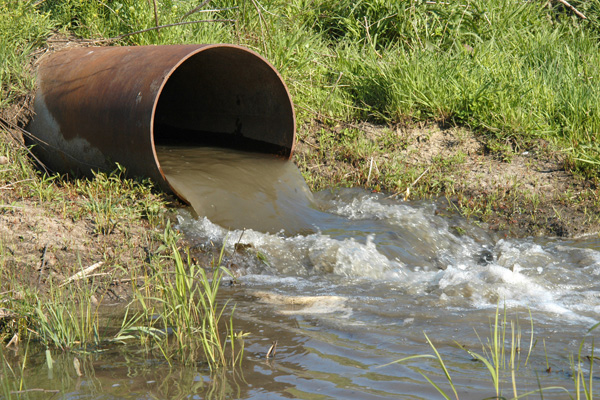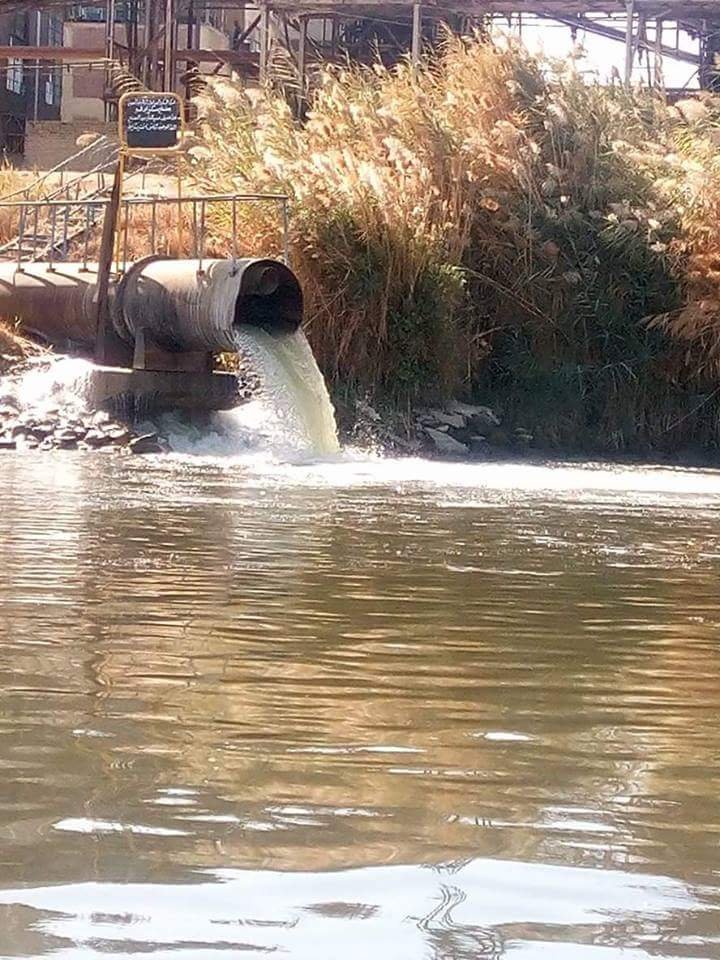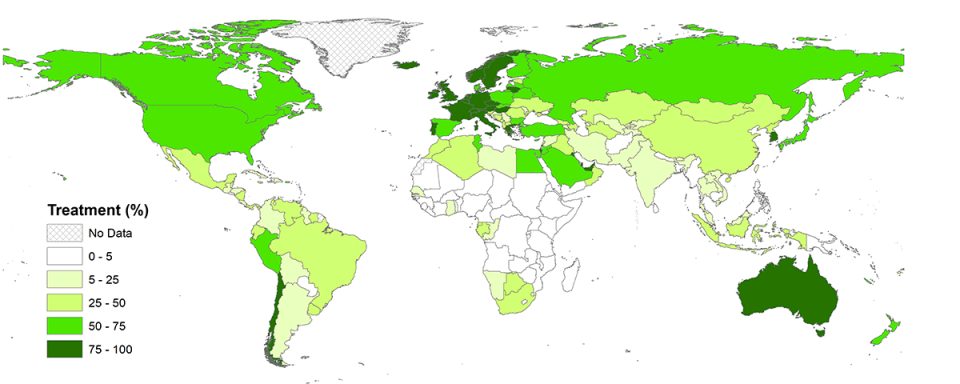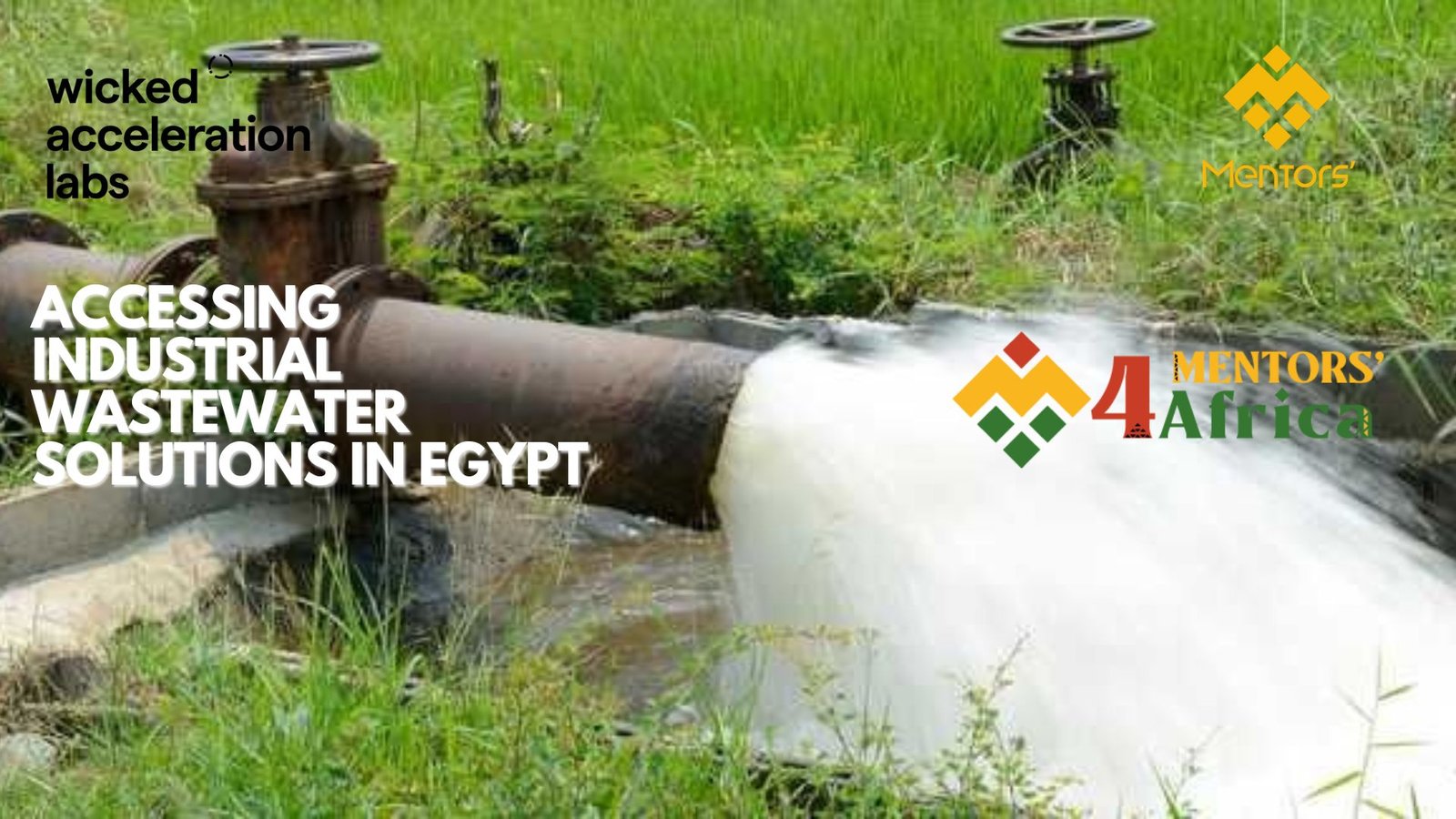Two days ago, I had the privilege of speaking at Imperial College London about one of the most critical challenges facing Egypt today: industrial wastewater management. The event, organized in collaboration with Wicked Acceleration Labs, marked a significant milestone in our efforts to bring innovative solutions to the MENA region for the first time.
A Personal Mission Aligned with Global Need
As CEO of Mentors, I’ve dedicated my career to empowering businesses and driving economic growth through innovative solutions. However, the industrial wastewater crisis in Egypt represents something deeper a convergence of environmental urgency, economic opportunity, and social responsibility that demands our immediate attention.

During my presentation at Imperial College, I shared sobering statistics that illustrate the magnitude of this challenge. Egypt’s water availability per capita has declined by 60% over four decades, now sitting at just 663 m³ annually significantly below the 1,000 m³ threshold that defines water scarcity. This isn’t just an environmental statistic; it’s a reality that affects millions of Egyptian families and threatens our nation’s economic future.
The Human Cost of Inaction
What struck me most during my time at Imperial College was the international recognition of Egypt’s unique position in addressing this global crisis. While 80% of the world’s wastewater flows untreated into our rivers, lakes, and oceans, Egypt faces the additional challenge of protecting the Nile a lifeline that supplies 54% of our industrial freshwater needs.

The human impact is profound. In Egypt’s low-income communities, 80% of illnesses stem from waterborne diseases caused by polluted water sources. Industrial contaminants, including heavy metals and chemicals with ammonia concentrations reaching 43 mg/L in raw wastewater, don’t just threaten our environment—they threaten our people’s health and our agricultural sector’s viability.
Innovation as the Path Forward
At Imperial College, I was inspired by the global innovations already making a difference. Membrane filtration technologies achieve 95% contaminant removal rates, while Advanced Oxidation Processes have reduced wastewater toxicity by 30% in pilot projects worldwide. More encouraging still, Egyptian innovations are proving their worth decentralized treatment systems in our villages achieve 90% pollutant removal at half the cost of conventional plants.
This is where our collaboration with Wicked Acceleration Labs becomes transformative. By bringing their acceleration methodology to the MENA region for the first time, we’re not just importing solutions we’re creating a framework for sustainable innovation that can be replicated across emerging markets.
Three Pillars of Our Approach
During my presentation, I outlined our three-pronged strategy:
Understanding Our Industrial Landscape: We’re comprehensively mapping wastewater generation across Egypt’s key industries textiles, food processing, petrochemicals, cement, and fertilizers. This isn’t just data collection; it’s the foundation for targeted, effective interventions.
Technology Assessment and Innovation: We’re evaluating current treatment technologies while investigating advanced, cost-effective alternatives. This includes everything from membrane filtration to constructed wetlands and anaerobic digestion systems that can be adapted to local conditions and economic realities.
Sustainable Economic Models: Perhaps most crucially, we’re developing investment frameworks that make these solutions viable. This includes identifying funding mechanisms, structuring public-private partnerships, and creating business models that ensure long-term sustainability.
The Broader Vision
Standing before the academic community at Imperial College, I was reminded that this challenge extends far beyond Egypt’s borders. With $2.5 trillion lost annually worldwide due to poor wastewater management, the economic case for action is as compelling as the moral imperative.

Egypt’s commitment to constructing 151 new treatment plants capable of processing 5.051 million m³ of wastewater daily demonstrates our government’s recognition of this crisis. Our role through Mentors and this collaboration is to ensure these investments achieve maximum impact through innovative approaches and international best practices.

Personal Reflections on Global Collaboration
This partnership with Imperial College London and Wicked Acceleration Labs represents more than a business opportunity it embodies the collaborative spirit necessary to address 21st-century challenges. Having built Mentors into an organization with 76 years of market presence, operations in 41 countries, and over 47,640 trainees across 17 nationalities, I understand the power of cross-border collaboration.
What excites me most about this initiative is its potential for transformative impact. Reclaimed wastewater could offset 20% of Egypt’s agricultural water demand, directly addressing food security while protecting our precious Nile ecosystem. We’re not just solving a waste problem we’re creating a resource that can drive economic growth and environmental sustainability simultaneously.
Looking Ahead
As I continue to develop this collaboration, I’m energized by the recognition that Egypt can become a model for the developing world. By successfully implementing innovative wastewater solutions here, we create a template that can be adapted across the MENA region and beyond.
The path forward requires sustained commitment from government agencies, private sector partners like Suez (who are already implementing Nile protection projects), NGOs promoting decentralized systems, and the international research community. My role is to help orchestrate these efforts into a coherent, impactful strategy.
This isn’t just about treating wastewater it’s about transforming waste into opportunity, scarcity into abundance, and challenge into competitive advantage. Egypt has the potential to lead the developing world in sustainable water management, and I’m committed to making that vision a reality.
The conversation that began at Imperial College London is just the beginning. As we move forward with Wicked Acceleration Labs’ first MENA launch, we’re not just addressing Egypt’s water crisis—we’re pioneering solutions that can benefit communities worldwide.
To learn more about my work in sustainable development and business acceleration, or to discuss collaboration opportunities, please feel free to reach out through my website or professional networks.
